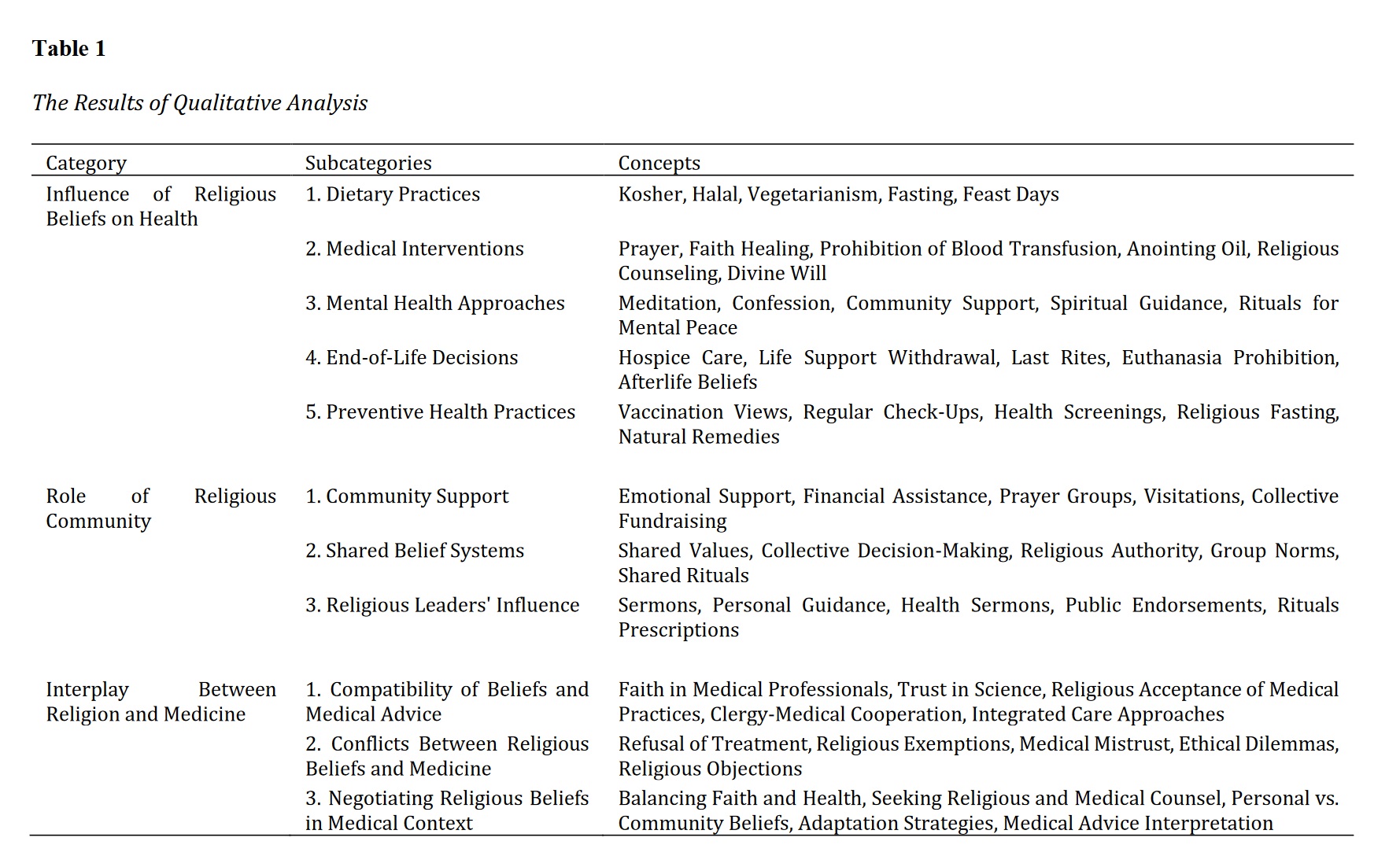The Influence of Religious Beliefs on Health Decision-Making: Perspectives from Diverse Faith Communities
Keywords:
Religious beliefs, health decision-making, diverse faith communities, qualitative research, medical interventions, end-of-life decisions, cultural competence, holistic careAbstract
This study aims to explore the influence of religious beliefs on health decision-making among diverse faith communities. The research seeks to understand how religious doctrines, practices, and community dynamics shape health behaviors, medical interventions, mental health approaches, and end-of-life decisions. A qualitative research design was employed, utilizing semi-structured interviews to gather in-depth insights from participants. A purposive sample of 30 individuals representing various religious traditions, including Christianity, Islam, Hinduism, Buddhism, Judaism, and other minor faiths, was selected. Interviews were conducted in person or via video calls, recorded, and transcribed verbatim. Data analysis was performed using NVivo software, following a thematic approach to identify and categorize key themes and subthemes. Theoretical saturation was achieved when no new information emerged from the interviews. The study identified several key themes: the influence of religious beliefs on health, the role of religious communities, and the interplay between religion and medicine. Participants reported that their religious beliefs significantly influenced dietary practices, medical interventions, mental health approaches, and end-of-life decisions. Religious communities provided crucial emotional and financial support, while religious leaders played a significant role in guiding health decisions. The compatibility and conflicts between religious beliefs and medical advice were evident, with participants employing various strategies to negotiate these differences within medical contexts. Religious beliefs profoundly shape health decision-making across diverse faith communities. Healthcare providers must recognize and respect these beliefs to provide culturally competent and holistic care. Training programs that enhance cultural and religious competence, collaborative approaches involving religious leaders, and institutional policies that accommodate religious practices can improve patient satisfaction and health outcomes. Future research should explore these dynamics with larger, more diverse samples and mixed-methods approaches.
Downloads






